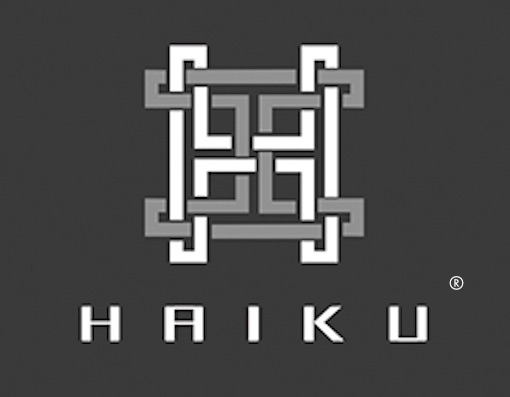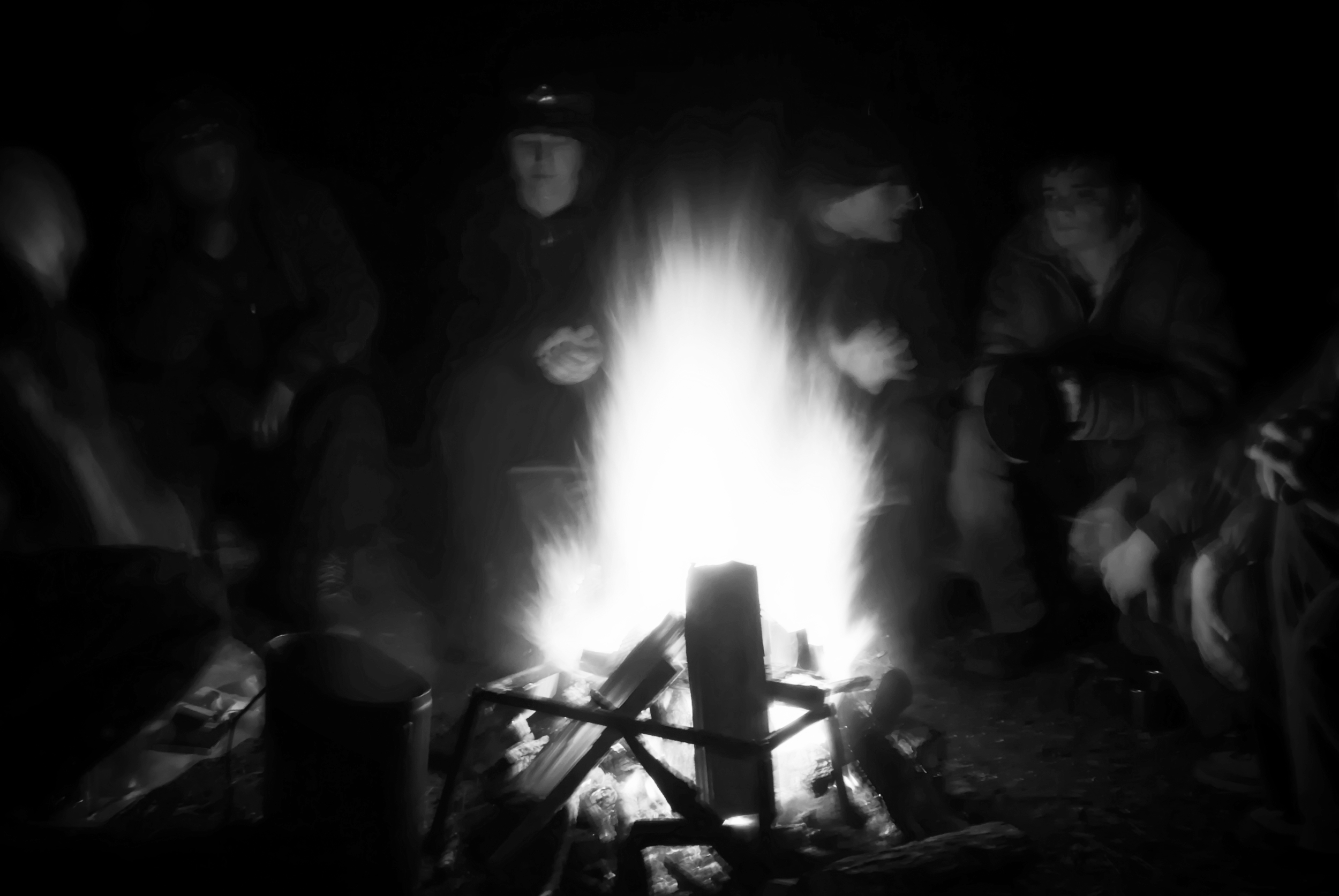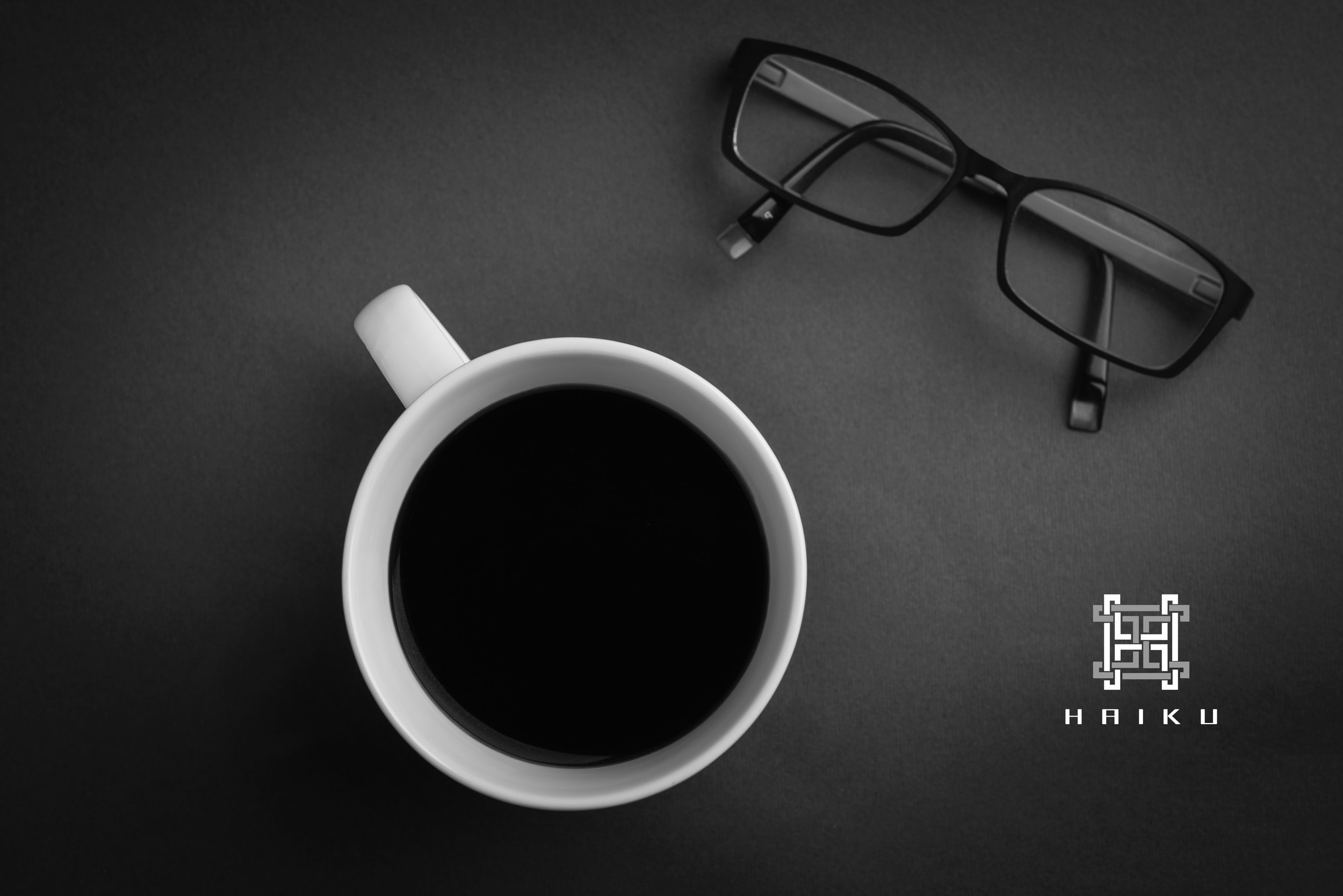According to this wikipedia note on 'Origin of Language',
"In 1861, historical linguist Max Müller published a list of speculative theories concerning the origins of spoken language:
Bow-wow theory: The bow-wow or cuckoo theory, which Müller attributed to the German philosopher Johann Gottfried Herder, saw early words as imitations of the cries of beasts and birds.
Pooh-pooh theory: The pooh-pooh theory saw the first words as emotional interjections and exclamations triggered by pain, pleasure, surprise, etc.
Ding-dong theory: Müller suggested what he called the ding-dong theory, which states that all things have a vibrating natural resonance, echoed somehow by man in his earliest words.
Yo-he-ho theory: The yo-he-ho theory claims language emerged from collective rhythmic labor, the attempt to synchronize muscular effort resulting in sounds such as heave alternating with sounds such as ho.
Ta-ta theory: This did not feature in Max Müller's list, having been proposed in 1930 by Sir Richard Paget. According to the ta-ta theory, humans made the earliest words by tongue movements that mimicked manual gestures, rendering them audible."
This shows we have been acute observers of our environment and quick learners too. And we fidget with everything we were bestowed upon. Once language existed, humans being social animals wanted to talk. Talk about various things. Those things needed to be identified.
So, the need to name comes from the ease of identifying someone or something easily. Naming is assigning a name to something. Naming is an old human urge. Through naming we make sense of things.
But why have Humans always named stuff?
Identity
Names are used primarily to identify an entity (person, animals, things, places, feelings, objects, experiences) or a class of entities.
The need to identify is critical from a classic Darwinian point of view. Survival of the fittest! Ancient world was full of perils. Every day was a battle of survival for the early cavemen and the tribes of hunter gatherers. These ancient men had to identify that beast having those terrifying eyes and sharp teeth and ferocious gait. They had to identify food. They had to identify which plants were edible and which plants were poisonous. And these identities had to be shared to ensure survival of the tribe.
Identifying is a primal need. It keeps you alive.
Fast forward to a time when we started settling down.
With advent of human settlements in villages and towns, in order to differentiate between two people sharing the same name, last names or surnames came into practice. These surnames were either patronymic (referring to the father or mother), a toponymic (indicating where a person is from), an epithet (which describes a person in some way) or a name derived from occupation, office or status.
Convenience
Without a name, you would often call a person or a thing by its associations-features, traits etc
"Yesterday I was on my way to office and I saw it. First, I thought it was a bird. Then it seemed like a plane. But boy was I so wrong. It was Him. That strong guy who flies in blue tee, red inner-wear except worn on the outside...the guy with wavy hair and a red cape, you know the one who shoots laser from his eyes!"
Sometimes time is of essence. You want to be economical with words.
Imagine, every time you are falling down from a skyscraper and shouting out for his help with that longish narrative. So, to avoid lengthy confusing narratives, we used a shortcut- The Name. Later that name became an automatic trigger of associations.
The name "Superman" makes our life easy. The moment you hear Superman-you will visualize the gentleman exactly as the one explained above. The moment you hear 'Pizza' you will think of yummy melted cheese, basil and tomato sauce spread on hot flat round bread'.
Names are tags for an idea or group of ideas that mean something. In a way they are one-word stories. Sort of.
Power
People have always believed when you name something, it gives you power over it. According to folklores, knowledge of a true name allows influence over it. 'A true name is a name of a thing or being that expresses, or is somehow identical to, its true nature. The notion that language, or some specific sacred language, refers to things by their true names has been central to philosophical study as well as various traditions of magic, religious invocation and mysticism (mantras) since antiquity'. Names were always thought to be potent. So much that many religions believed in the power of naming in rituals. Doing a ritual "in someone's name" was believed to be magical. Also, it is said that when you don't understand something, naming 'IT' would be the first logical step towards understanding it.
There is immense power in a name. So much so that even demons were exorcised by revealing their true names. (Conjuring 2 anyone?)
Power is a beastly instinct. Animals mark their territory by peeing. Politicians mark their territory by naming- places, bridges, parks and policies.
Power is sexy. Naming yields power.
Hope, Prosperity & Immortality
Naming your child after a God (or saint) is nothing new. We have been doing it since ages. Chances are, right now, there is a person near you with a Biblical name or a name derived from Hindu or Greek God. Many religions encouraged parents to name their kids after Gods, Saints or even Kings.
There is this unspoken belief that the child imbibes certain good traits of Gods themselves or maybe blessed by them forever if they are named after them. Some names are naturally trustworthy. Some names promise to bestow upon us good luck.
There is hope and prosperity in a name. A name lives forever. Enough said. Now we know why we name stuff.
Let’s go back to our old friend Kushim. We don’t know what Kushim means. There could have been many Kushims. And that was probably ok. Naming a human is relatively easier. If your first name does not uniquely identify you, chances are that the combination of your first name and last name will make you unique. Even if that is not true, then your looks and appearance, your education or career or your social status will lend you an identity.
But Naming brands is a different ball game altogether.
Why your brand name matters?
There are a zillion brands in the market. The world does not need another "me-too" brand. Being just another name in the category does not mean you are a 'brand'. A mediocre or bad name will cost you millions in advertising spends later. A good name can be the difference between being lost and being remarkable. And honestly, if you were not inherited with a bad name, why not start off your business on the right foot.
What should a brand name do:
Your brand name should help reflect and identify your product/service. It should ideally explain what you do. But once it does that it needs to do more. It needs to set consumer expectations. A brand name is like the title of a book or a movie trailer. It needs to reveal a bit of what experiences lie ahead. However, it need not be an entire story.
Merely identifying is not enough.
In the world of business, if your name does not uniquely identify you, you are bound to end up as white noise. A commodity forever stuck in price wars and limited by category growth rates. Being uniquely identified is critical to breaking free from commoditization.
Names that lend consumers a sense of identity are the ones that go beyond their products. They stand for an idea. E.g. “Virgin” is an idea of infusing every category it enters with a welcome refreshing and ‘new’ perspective). Being seen as a young brand in a category of old establishments is not a bad idea.
A sense of identity is a set of ideals that you would want to be associated with. It is how you wish to be seen. It lends meaning to a meaningless existence. It helps you belong to something bigger than yourself. A powerful name will lend the consumer that sense of identity.
A powerful brand name will provoke consumers to think about the status quo. It will challenge the world as is. It will reflect how the brand is going to disrupt your world for the better. It will not necessarily belong to the category at the expense of differentiation. It will choose meaningful differentiation over category relevance. It may seem like an outlier in the category but for a reason.
E.g. Tesla is a powerful brand name for a new age electric car company. Nikola Tesla was a genius inventor who invented modern alternating current electricity supply system. Tesla also had an extra ordinary personality and charisma. He was known for his creativity, curiosity, rationality, asceticism, and immense powers of imagination. A perfect name for a company challenging the status quo of conventional automobiles. Tesla is catchy, powerful, memorable and teases a promising story of invention.
Caterpillar is another weird but powerful brand name for a large earth moving equipment company. Caterpillar is a small slow moving bug. But it represents the transformation. (caterpillar metamorphizes into a beautiful butterfly).
Naming a computer company as Apple would be quite tough (“there is nothing techy about an Apple”) these days as per standard name selection process in client board rooms. (Decision by committee usually means you will end up with a mediocre safe name)
And yet Apple challenged the status quo of big brothers like IBM. A classic example of how a brand name chooses differentiation over category relevance.
The Boring Company is a not-so-boring name for a company that actually bores (tunnels). A tongue-in-cheek name for a company that aims to make commute better.
Arrogant Bastard Ale sees itself as an aggressive beer. It does not make the consumer sit on a pedestal. “You probably won’t like it. It is quite doubtful that you have the taste or sophistication to be able to appreciate an ale of this quality and depth” Its tagline – “You are not worthy”. A challenger brand has to be gutsy and take the bull by the horns. When you don’t have the budget of your large sized global competitor, you got to let the name do the talking. Honestly, they have punched above their weight. That's what underdogs do.





















